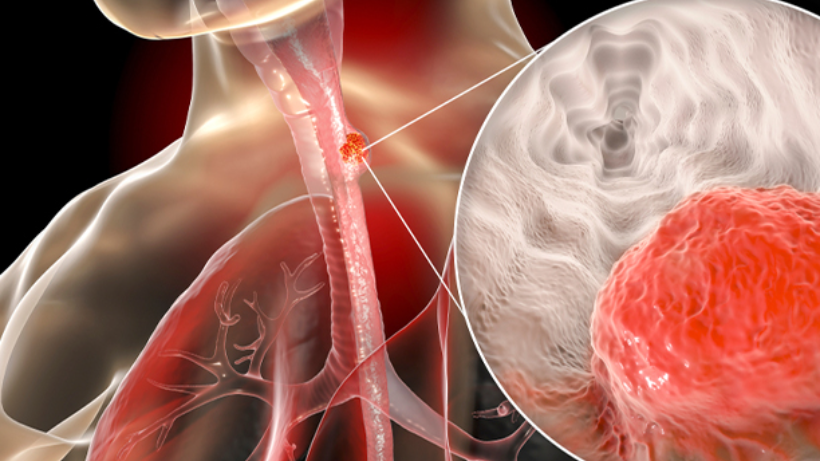
Knowing the Details of Esophageal Cancer Staging
17 Jun, 2022
 Healthtrip Team
Healthtrip TeamOverview
When someone is diagnosed with esophageal cancer, doctors will try to determine if it has spread and, if so, how far it has spread. This is known as staging. The cancer stage describes how much cancer is present in the body. It helps to assess cancer's severity and the most effective course of medical treatment. Here we’ve discussed the esophageal cancer staging in brief.
How do doctors determine the stage of cancer?
One method that clinicians use to describe the stage is the TNM system. Doctors use diagnostic tests and scan findings to address the following questions:
Transform Your Beauty, Boost Your Confidence
Find the right cosmetic procedure for your needs.

We specialize in a wide range of cosmetic procedures

- Tumor (T): How far has the primary tumor penetrated the esophageal wall and surrounding tissue?
- Have the lymph nodes (N) been affected by the tumor? If yes, where and how many are there?
- Metastasis (M) is a sign that cancer has spread to additional body parts.
Doctors also classify this sort of cancer based on its grade (G). The grade indicates how similar cancer cells appear to normal cells under a microscope. The doctor contrasts malignant and healthy tissue. In healthy tissue, many different cell types are grouped together.
Also, Read - Is Stage I Hypertension Serious?
If cancer resembles healthy tissue and has different cell groupings, it is said to be "differentiated." Malignant tissue is referred to as "poorly differentiated" when it differs significantly from healthy tissue.
The combined data is used to determine each individual's cancer stage. There are five stages: stage 0 (zero), and stages I–IV (1 through 4). The stage gives a consistent language for specialists to describe the malignancy, allowing them to collaborate on treatment plans.
Also, Read - Breast Cancer Stages & Treatment
The grade of your cancer is another aspect that can influence your therapy and outlook. The grade shows how closely the tumor resembles normal tissue when viewed under a microscope.
Most popular procedures in
Total Hip Replacemen
Upto 80% off
90% Rated
Satisfactory

Total Hip Replacemen
Upto 80% off
90% Rated
Satisfactory

Breast Cancer Surger
Upto 80% off
90% Rated
Satisfactory

Total Knee Replaceme
Upto 80% off
90% Rated
Satisfactory

Total Knee Replaceme
Upto 80% off
90% Rated
Satisfactory

The esophageal cancer grading scale ranges from 1 to 3.
GX: The grade cannot be assessed.
Grade 1 (G1: highly differentiated; low grade) cancer cells resemble normal esophageal cells.
Grade 2 (G2: moderately differentiated; intermediate) is located between Grades 1 and 3.
Grade 3 (G3: poorly differentiated, undifferentiated; high grade) cancer cells are extremely aberrant.
Low-grade cancers grow and spread at a slower rate than high-grade tumors. Low-grade tumors usually have a better prognosis than high-grade tumors.
Also, Read - Stage 3 Breast Cancer Survival Rate By Age
In general, esophageal tumors of stages 0, I, and II are potentially curable. Most stage III cancers are potentially resectable as well, even if they have progressed to neighboring lymph nodes, as long as cancer has not moved into the trachea (windpipe), aorta (the main blood supply that comes from the heart), the spine, or other nearby vital tissues. Unfortunately, many people with potentially resectable cancer may be unable to have surgery to remove their malignancies because they are not in good enough health.
If you have localized esophageal cancer, it is often recommended that you attend a multidisciplinary meeting to discuss your case. Your medical information is examined at this meeting by experts from several disciplines (for example, medical oncology, pathology, surgery, etc.).
How can we help with the treatment?
If you are in search of cancer treatment in India, we will serve as your guide throughout your treatment and will be physically present with you even before it begins. The following will be provided to you:
- Opinions of expert physicians and surgeons
- Transparent communication
- Coordinated care
- Prior appointment with specialists
- Assistance with hospital formalities
- 24*7 availability
- Arrangements for travel
- Assistance for accommodation and healthy recovery
- Assistance in emergencies
Our team is dedicated to offering the highest quality health trip and care to our patients. At Healthtrip, we have a team of highly qualified and devoted health professionals that will be by your side from the beginning of your journey.
Wellness Treatment
Give yourself the time to relax
Lowest Prices Guaranteed!

Lowest Prices Guaranteed!